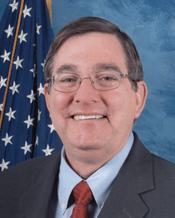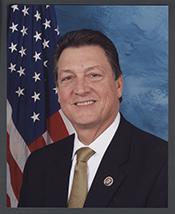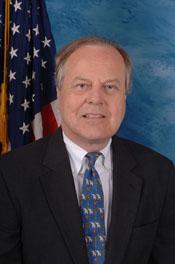0
SGR Repeal and Medicare Provider Payment Modernization Act of 2014
3/14/2024, 12:48 PM
Congressional Summary of HR 4015
SGR Repeal and Medicare Provider Payment Modernization Act of 2014 - Amends title XVIII (Medicare) of the Social Security Act (SSA) to: (1) end and remove sustainable growth rate (SGR) methodology from the determination of annual conversion factors in the formula for payment for physicians' services, (2) establish an update to the single conversion factor for 2014 through 2018 of 0.5%, (3) freeze the update to the single conversion factor at 0.00% for 2019 through 2023, and (4) establish an update of 1% for health professionals participating in alternative payment models (APMs) and an update of 0.5% for all other health professionals after 2023.
Directs the Medicare Payment Advisory Commission (MEDPAC) to report to Congress on the relationship between: (1) physician and other health professional utilization and expenditures (and their rate of increase) of items and services for which Medicare payment is made; and (2) total utilization and expenditures (and their rate of increase) under Medicare parts A (Hospital Insurance), B (Supplementary Medical Insurance), and D (Voluntary Prescription Drug Benefit Program).
Directs MEDPAC to report to Congress on: (1) the payment update for professional services applied under Medicare for 2014 through 2018; (2) the effect of such update on the efficiency, economy, and quality of care provided under such program; (3) the effect of such update on ensuring a sufficient number of providers to maintain access to care by Medicare beneficiaries; and (4) recommendations for any future payment updates for professional services under such program to ensure adequate access to care is maintained for Medicare beneficiaries
Revises and consolidates components of the three specified existing performance incentive programs into a merit-based incentive payment system (MIPS) the Secretary of Health and Human Services (HHS) is directed to establish, under which MIPS-eligible professionals (excluding most Alternative Payment Model [APM] participants) receive annual payment increases or decreases based on their performance. Applies the MIPS program to payments for items and services furnished on or after January 1, 2018.
Requires specified incentive payments to be made to eligible partial qualifying APM participants.
Directs the Secretary to make available on the Physician Compare website of the Centers for Medicare & Medicaid Services (CMS) certain information, including information regarding the performance of MIPS-eligible professionals.
Requires the Comptroller General (GAO) to evaluate the MIPS program.
Requires GAO to submit to Congress a report that: (1) compares the similarities and differences in the use of quality measures under the original Medicare fee-for-service programs, the Medicare Advantage (MA) program under Medicare part C (Medicare+Choice), selected state Medicaid programs, and private payer arrangements; and (2) make recommendations on how to reduce the administrative burden involved in applying such quality measures.
Directs GAO to report to Congress on: (1) whether entities that pool financial risk for physician services can play a role in supporting physician practices in assuming financial risk for treatment of patients; and (2) the transition to an APM of professionals in rural areas, health professional shortage areas, or medically underserved areas.
Establishes the Payment Model Technical Advisory Committee to make recommendations to the Secretary on physician-focused payment models.
Requires the Secretary to study: (1) the application of federal fraud prevention laws related to APMs; (2) the effect of individuals' socioeconomic status on quality and resource use outcome measures for individuals under Medicare; and (3) the impact of risk factors, race, health literacy, limited English proficiency (LEP), and patient activation, on quality and resource use outcome measures under Medicare.
Directs the Secretary to: (1) post on the CMS Internet website a draft plan for the development of quality measures to assess professionals, (2) establish new Healthcare Common Procedure Coding System (HCPCS) codes for chronic care management services, and (3) conduct an education and outreach campaign to inform professionals who furnish items and services under Medicare part B and Medicare part B enrollees of the benefits of chronic care management services.
Authorizes the Secretary to: (1) collect and use information on the resources directly or indirectly related to physicians' services in the determination of relative values under the Medicare physician fee schedule; and (2) establish or adjust practice expense relative values using cost, charge, or other data from suppliers or service providers.
Revises and expands factors for identification of potentially misvalued codes. Sets an annual target for relative value adjustments for misvalued services. Phases-in of significant relative value unit (RVU) reductions.
Directs GAO to study the processes used by the Relative Value Scale Update Committee (RUC) to make recommendations to the Secretary regarding relative values for specific services under the Medicare physician fee schedule.
Makes Metropolitan Statistical Areas in California fee schedule areas for Medicare payments.
Directs the Secretary to: (1) establish a program to promote the use of appropriate use criteria for certain imaging services furnished by ordering professionals and furnishing professionals, and (2) make publicly available on the CMS Physician Compare website specified information with respect to eligible professionals.
Expands the kinds and uses of data available to qualified entities for quality improvement activities.
Directs the Secretary to provide Medicare data to qualified clinical data registries to facilitate quality improvement or patient safety.
Permits continuing automatic extensions of a Medicare physician and practitioner election to opt-out of the Medicare physician payment system into private contracts.
Directs the Secretary to: (1) make publicly available through an appropriate publicly accessible website information on the number and characteristics of opt-out physicians and practitioners; and (2) report to Congress recommendations to amend existing fraud and abuse laws, through exceptions, safe harbors, or other narrowly targeted provisions, to permit gainsharing or similar arrangements between physicians and hospitals that improve care while reducing waste and increasing efficiency.
Declares it a national objective to achieve widespread exchange of health information through interoperable certified electronic health record (EHR) technology nationwide by December 31, 2017, as a consequence of a significant federal investment in the implementation of health information technology through the Medicare and Medicaid EHR programs.
Directs the Secretary to study the feasibility of establishing mechanisms that includes aggregated results of surveys of meaningful EHR users on the functionality of certified EHR products to enable such users to compare directly the functionality and other features of such products.
Requires GAO studies on the use of telehealth under federal programs and on remote patient monitoring services.




